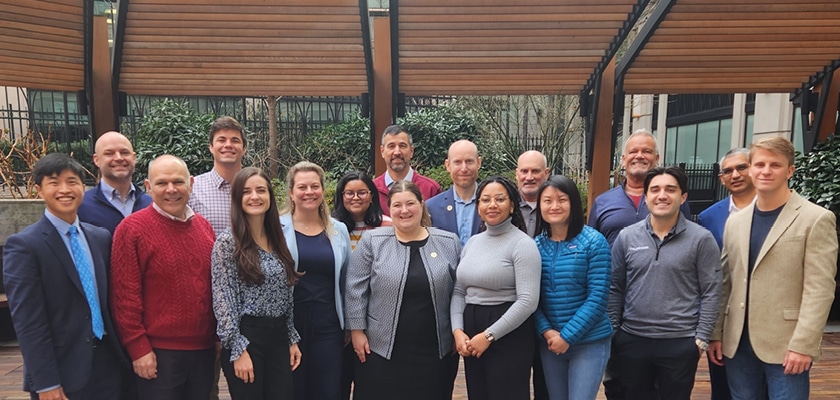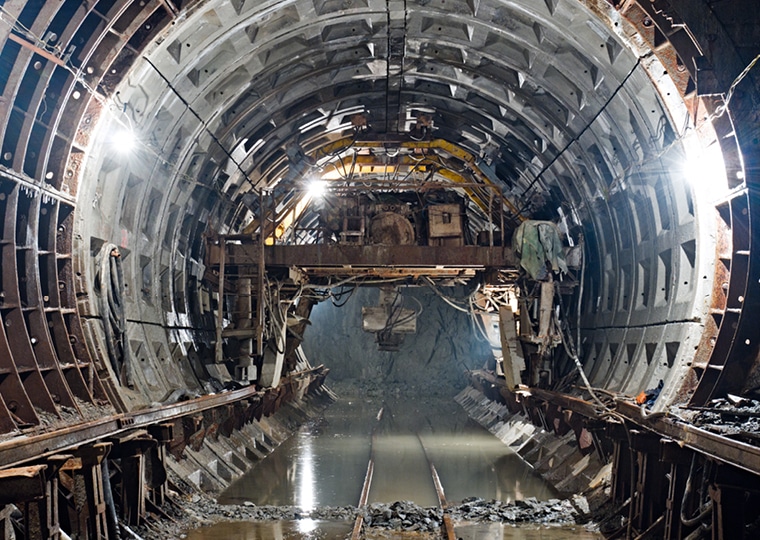
As efforts to reduce and eliminate embodied carbon in our nation’s infrastructure continue to intensify, three STV thought leaders recently participated in a workshop to map out strategies and best practices for expediting decarbonization initiatives in infrastructure design and construction.
STV’s Lauren Alger, PE, ENV SP, director of sustainable design; Jorge Suarez, PE, F.ASCE, vice president and national bridge practice leader; and Mrutyunjay (Jay) Vajirkar, PE, ENV SP, senior associate and senior project manager for tunneling, joined the first-ever American Society of Civil Engineers (ASCE) Infrastructure 2050 Workshop held at the ASCE Government Relations office in Washington, DC. Alger played a vital role in organizing and leading the event, which focused on accelerating efforts to reduce embodied carbon throughout the lifecycle stages of bridges and tunnels.
The workshop fostered collaboration and knowledge sharing by drawing from a diverse array of infrastructure industry stakeholders including engineers, steel fabricators, cement and concrete manufacturers, contractors, sustainability certification leaders, compliance tool experts, and professional industry organization leaders.
STV’s team has been an industry leader in pursuing the reduction of embodied carbon – CO2 that is released during the extraction, transportation, manufacturing, construction and disposal of building materials. Alger is a co-founder and chair of the ACSE Infrastructure 2050 Commitment, which seeks to identify and disseminate the most effective methods for reducing embodied carbon in high-emission infrastructure projects, ultimately striving for carbon neutrality by 2050. She is a sought-after expert in sustainable infrastructure design, recently attending the United Nations’ annual climate summit, COP28, as a virtual delegate on behalf of Architecture 2030.






